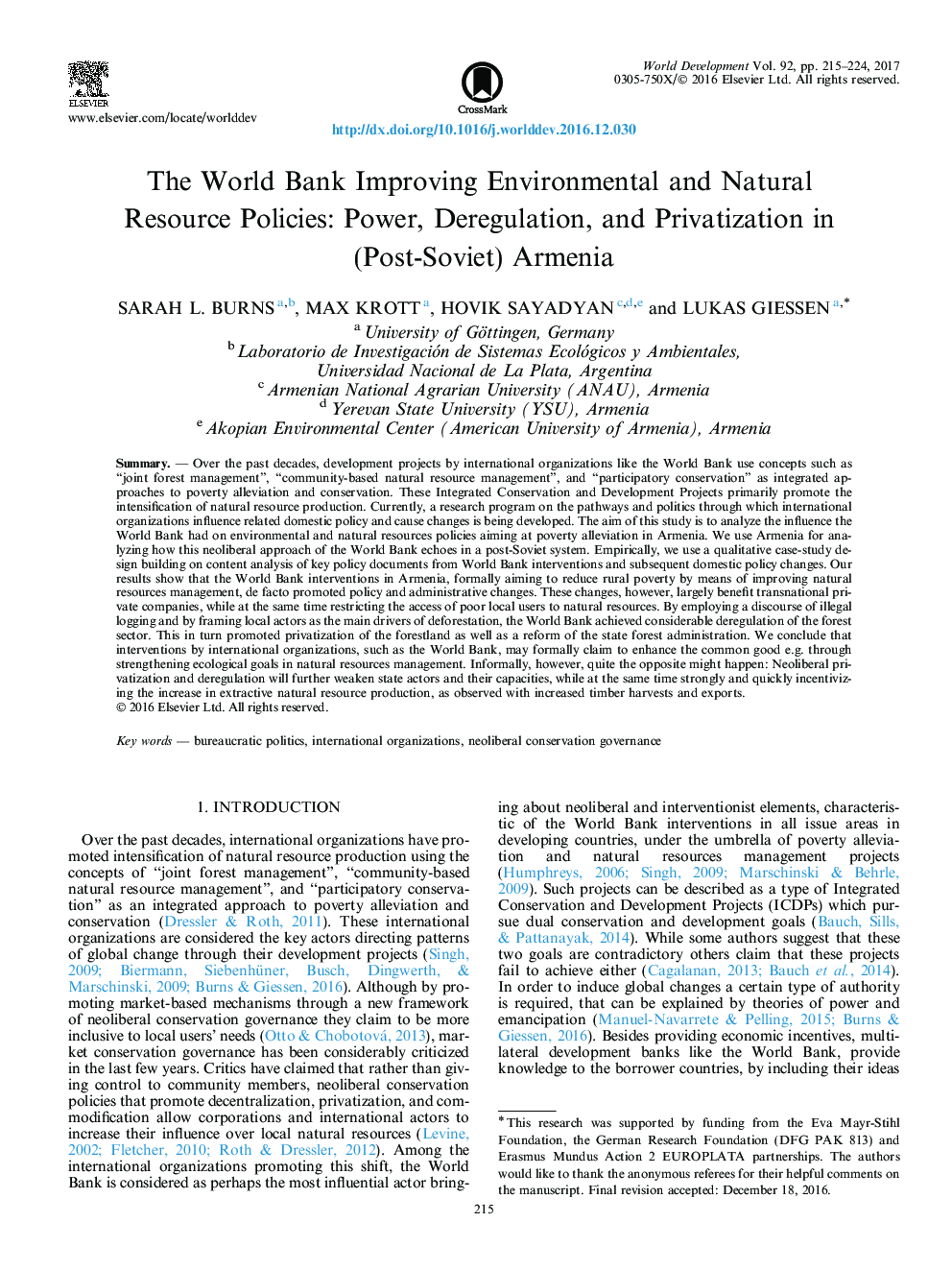| Article ID | Journal | Published Year | Pages | File Type |
|---|---|---|---|---|
| 5105036 | World Development | 2017 | 10 Pages |
Abstract
Over the past decades, development projects by international organizations like the World Bank use concepts such as “joint forest management”, “community-based natural resource management”, and “participatory conservation” as integrated approaches to poverty alleviation and conservation. These Integrated Conservation and Development Projects primarily promote the intensification of natural resource production. Currently, a research program on the pathways and politics through which international organizations influence related domestic policy and cause changes is being developed. The aim of this study is to analyze the influence the World Bank had on environmental and natural resources policies aiming at poverty alleviation in Armenia. We use Armenia for analyzing how this neoliberal approach of the World Bank echoes in a post-Soviet system. Empirically, we use a qualitative case-study design building on content analysis of key policy documents from World Bank interventions and subsequent domestic policy changes. Our results show that the World Bank interventions in Armenia, formally aiming to reduce rural poverty by means of improving natural resources management, de facto promoted policy and administrative changes. These changes, however, largely benefit transnational private companies, while at the same time restricting the access of poor local users to natural resources. By employing a discourse of illegal logging and by framing local actors as the main drivers of deforestation, the World Bank achieved considerable deregulation of the forest sector. This in turn promoted privatization of the forestland as well as a reform of the state forest administration. We conclude that interventions by international organizations, such as the World Bank, may formally claim to enhance the common good e.g. through strengthening ecological goals in natural resources management. Informally, however, quite the opposite might happen: Neoliberal privatization and deregulation will further weaken state actors and their capacities, while at the same time strongly and quickly incentivizing the increase in extractive natural resource production, as observed with increased timber harvests and exports.
Related Topics
Social Sciences and Humanities
Economics, Econometrics and Finance
Economics and Econometrics
Authors
Sarah L. Burns, Max Krott, Hovik Sayadyan, Lukas Giessen,
